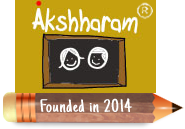Six Ideas to Help Children Increase Their Vocabulary in a Second Language

Learning a new language can be challenging but there are certain ways where you can trick your brain into learning faster. Most of the traditional methods used to study a language only utilize parts of your brain and leave the rest of that brainpower idle. What can you do to engage other parts of your brain to help you learn simultaneously? Neuroscience has recently proved that by using these tricks and hacks, you can learn a language faster and easier and likely would remember the context. The foundation of learning any language is vocabulary. According to studies, four out of ten children possess limited vocabulary which is affecting their learning. It is important to know and understand the most commonly used words and memorizing them will give you a considerable boost in the language. This is one of the smart ways of online learning. Reach out to one of the many Malayalam Language Reading Classes Online to learn and understand the meaning of words and grasp the same quicker.
How to improve Malayalam vocabulary in kids?
A youngster has to have a solid, well-rounded understanding of fundamental terms and what they signify before they can learn to read. Even if it may seem a little intimidating, there are several simple strategies to increase a preschooler's vocabulary and lead them to the basics of reading. Through this;
a) You are assisting your child's learning of words by doing anything from reading aloud to a simple conversation with them.
b) Your child is learning how words work, what they mean, how they are similar and different, and a whole lot more.
c) Even if the child has speech delays, parents can support their child's language development.
In fact, the more parents support their children in overcoming obstacles, the more ready they will be for kindergarten. Here are some quick and interesting Malayalam language vocabulary-building practices that you can do with your child daily to help them learn new words.
1) Replace Words
By employing new terms yourself, you can teach children new vocabulary. Being a walking thesaurus and replacing different words with their synonyms is one approach to do this. Although synonyms may signify the same thing as the original word, they are frequently more descriptive. Add vitality to new words by showing pictures of them online or in a book. If the word is an emotion descriptor, use your hands or face to express the emotion.
2) Use Descriptive Words
Your child will learn, assimilate, and subsequently use more words the more she hears daily. Try using a variety of descriptive words in daily conversation and while describing something. Even though a toddler may not yet be able to understand these terms, by utilizing them in the appropriate context, you can help them become more understandable.
3) Practice Rhyming
Rhymes are not only fun, but it is also an easy way to get your toddler thinking about how different words can relate to each other. Rhymes and poems stick to their mind as nothing else do. So that it is easy for them to recall these words. Most experts concur that for a new word to be completely imprinted in a child's long-term memory and added to their vocabulary, it normally takes 4 to 12 encounters. So, repeat the rhymes more often.
4) Read together
Reading aloud to your preschooler is a great method to introduce them to new words as well as a lovely way to spend quality time together. Using context, words and any possible picture you can determine what they imply to increase and improve their conversation. Encourage your kid to read books and something besides that. There are multiple sources where one may pick up new words. Studies demonstrate that youngsters who read frequently have broader vocabularies than those who do not.
5) Engage in games
Make use of junior versions of many popular board games that are excellent for learning new words and strengthening existing knowledge. Crossword puzzles are a useful tool for connecting a term to its meaning, while word searches can introduce new words and offer discussion starters. They can learn new words by playing a wide variety of word games, like I Spy, Scrabble, Boggle, and Bananagrams.
6) Make use of labels
Show them labels in addition to wording them frequently. Build on their fundamental understanding of well-known terms by naming everyday objects with the use of a label maker so they may learn to identify the word's appearance. Try sorting their toys, books or stuff into various bins containing comparable items, and name them with terms like "blocks," "dolls," "cars," "books," etc.
Final words…
Expanding your child's vocabulary is simple, but it is important as they start their reading adventure. Planning is necessary for some situations, such as when taking your kid to the library or naming objects in your house. However, most of the time, teaching and modelling new words for your child will just come naturally to you. If you are a parent wondering how to teach your kid your mother tongue and have less time to sit with them, to make them learn, you have a solution. Enrol your kids on Summer Online Malayalam Classes provided by professional language coaching centres which are reliable and easy to follow.
